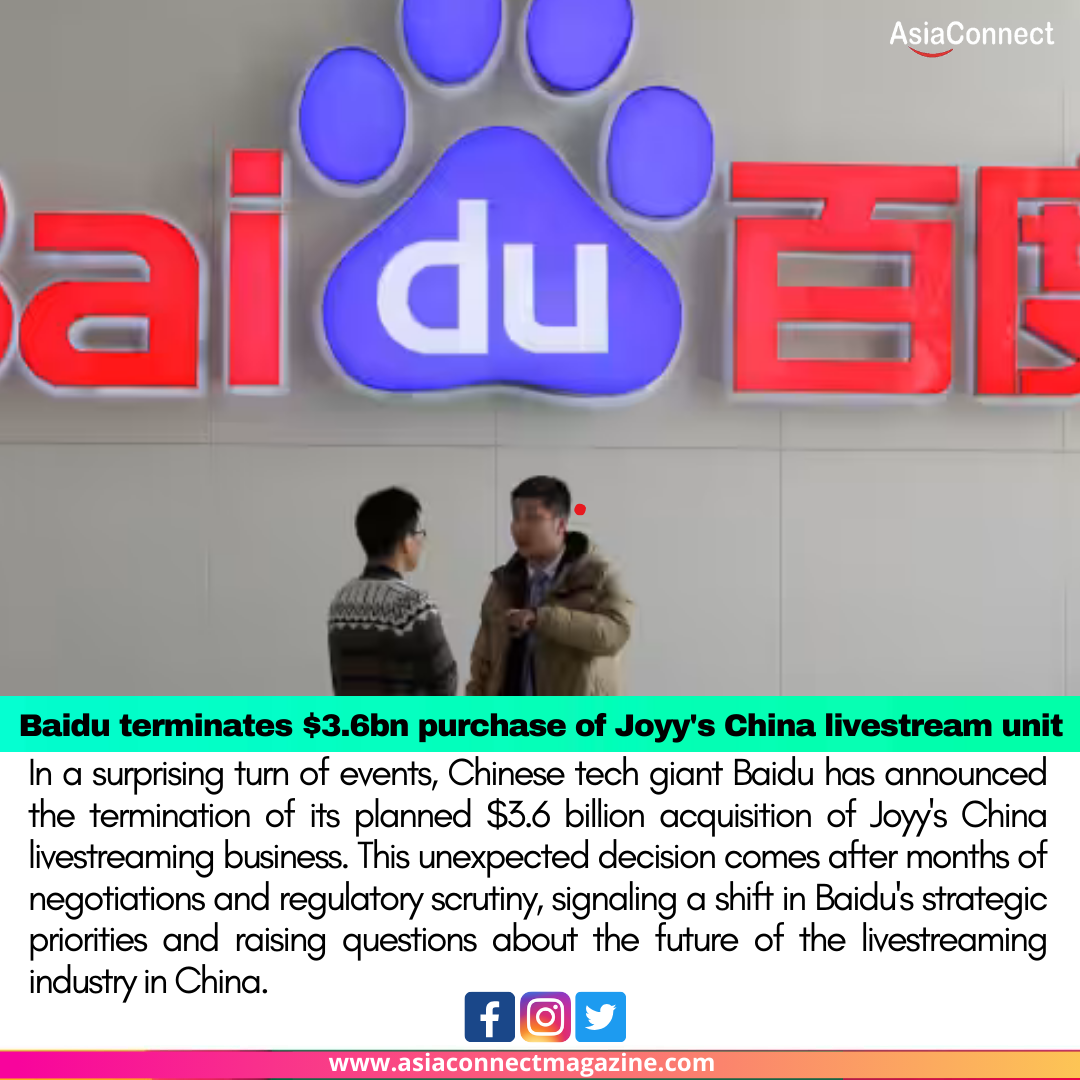In a surprising turn of events, Chinese tech giant Baidu has announced the termination of its planned $3.6 billion acquisition of Joyy’s China livestreaming business. This unexpected decision comes after months of negotiations and regulatory scrutiny, signaling a shift in Baidu’s strategic priorities and raising questions about the future of the livestreaming industry in China.
The acquisition, initially announced in November [insert year], was seen as a strategic move by Baidu to bolster its presence in the rapidly growing livestreaming market. Joyy’s China livestream unit, known for its platform YY, had established itself as a major player in the industry, with a substantial user base and diverse content offerings.
The termination of this deal raises several intriguing points, starting with the reasons behind Baidu’s decision. While the official statements from both companies cite changes in the business environment and regulatory uncertainties, analysts speculate that increasing scrutiny from Chinese regulators on tech acquisitions may have played a role. This aligns with the broader trend of Chinese authorities tightening oversight on major tech deals to address antitrust concerns and ensure fair market competition.
The termination also sheds light on the challenges and dynamics within the livestreaming industry, which has witnessed explosive growth in recent years. Livestreaming platforms in China have become integral to e-commerce, entertainment, and social interactions. Baidu’s interest in Joyy’s platform was likely fueled by a desire to diversify its offerings and tap into the lucrative livestreaming economy.
However, the decision to abandon the acquisition suggests that Baidu may be reevaluating its growth strategy and resource allocation. The company might be exploring alternative avenues or focusing on strengthening its existing capabilities rather than venturing into new territories.
The termination is likely to have implications for both Baidu and Joyy. Baidu, often referred to as China’s Google, has been seeking ways to expand beyond its core search engine business. The failed acquisition may prompt the company to revisit its acquisition strategy and consider partnerships or investments in other areas that align with its long-term goals.
For Joyy, the termination might mean a reassessment of its business strategy and potential partnerships. The company could explore other avenues for growth, including collaborations with other tech players or independent expansion initiatives.
The livestreaming industry in China, despite the setback in this deal, continues to evolve and thrive. The demand for interactive and engaging online content remains robust, and platforms offering unique experiences are likely to attract attention from users and investors alike. The termination of this deal may open the door for other players in the industry to explore new partnerships or consolidation opportunities.
As the tech landscape in China undergoes continuous transformation, keeping an eye on regulatory developments and understanding market dynamics is crucial for companies seeking growth and sustainability. The termination of Baidu’s acquisition of Joyy’s China livestream unit serves as a reminder of the complexities and uncertainties that businesses face in navigating the ever-changing landscape of the Chinese tech industry.
In conclusion, the termination of this high-profile deal raises questions about the future direction of both Baidu and Joyy, while also providing insights into the challenges and opportunities within the dynamic livestreaming industry in China.





